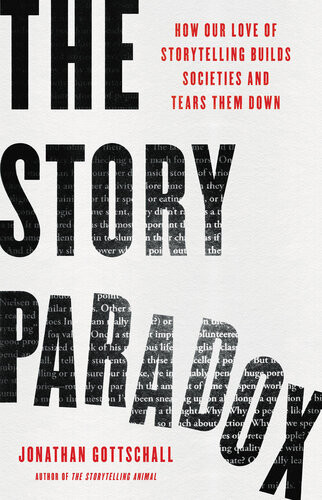

Most ebook files are in PDF format, so you can easily read them using various software such as Foxit Reader or directly on the Google Chrome browser.
Some ebook files are released by publishers in other formats such as .awz, .mobi, .epub, .fb2, etc. You may need to install specific software to read these formats on mobile/PC, such as Calibre.
Please read the tutorial at this link: https://ebookbell.com/faq
We offer FREE conversion to the popular formats you request; however, this may take some time. Therefore, right after payment, please email us, and we will try to provide the service as quickly as possible.
For some exceptional file formats or broken links (if any), please refrain from opening any disputes. Instead, email us first, and we will try to assist within a maximum of 6 hours.
EbookBell Team

4.8
84 reviewsStorytelling, a tradition that built human civilization, may soon destroy it
Humans are storytelling animals. Stories are what make our societies possible. Countless books celebrate their virtues. But Jonathan Gottschall, an expert on the science of stories, argues that there is a dark side to storytelling we can no longer ignore. Storytelling, the very tradition that built human civilization, may be the thing that destroys it.
In The Story Paradox, Gottschall explores how a broad consortium of psychologists, communications specialists, neuroscientists, and literary quants are using the scientific method to study how stories affect our brains. The results challenge the idea that storytelling is an obvious force for good in human life. Yes, storytelling can bind groups together, but it is also the main force dragging people apart. And it’s the best method we’ve ever devised for manipulating each other by circumventing rational thought. Behind all civilization’s greatest ills—environmental destruction, runaway demagogues, warfare—you will always find the same master factor: a mind-disordering story.
Gottschall argues that societies succeed or fail depending on how they manage these tensions. And it has only become harder, as new technologies that amplify the effects of disinformation campaigns, conspiracy theories, and fake news make separating fact from fiction nearly impossible.
With clarity and conviction, Gottschall reveals why our biggest asset has become our greatest threat, and what, if anything, can be done. It is a call to stop asking, “How we can change the world through stories?” and start asking, “How can we save the world from stories?”